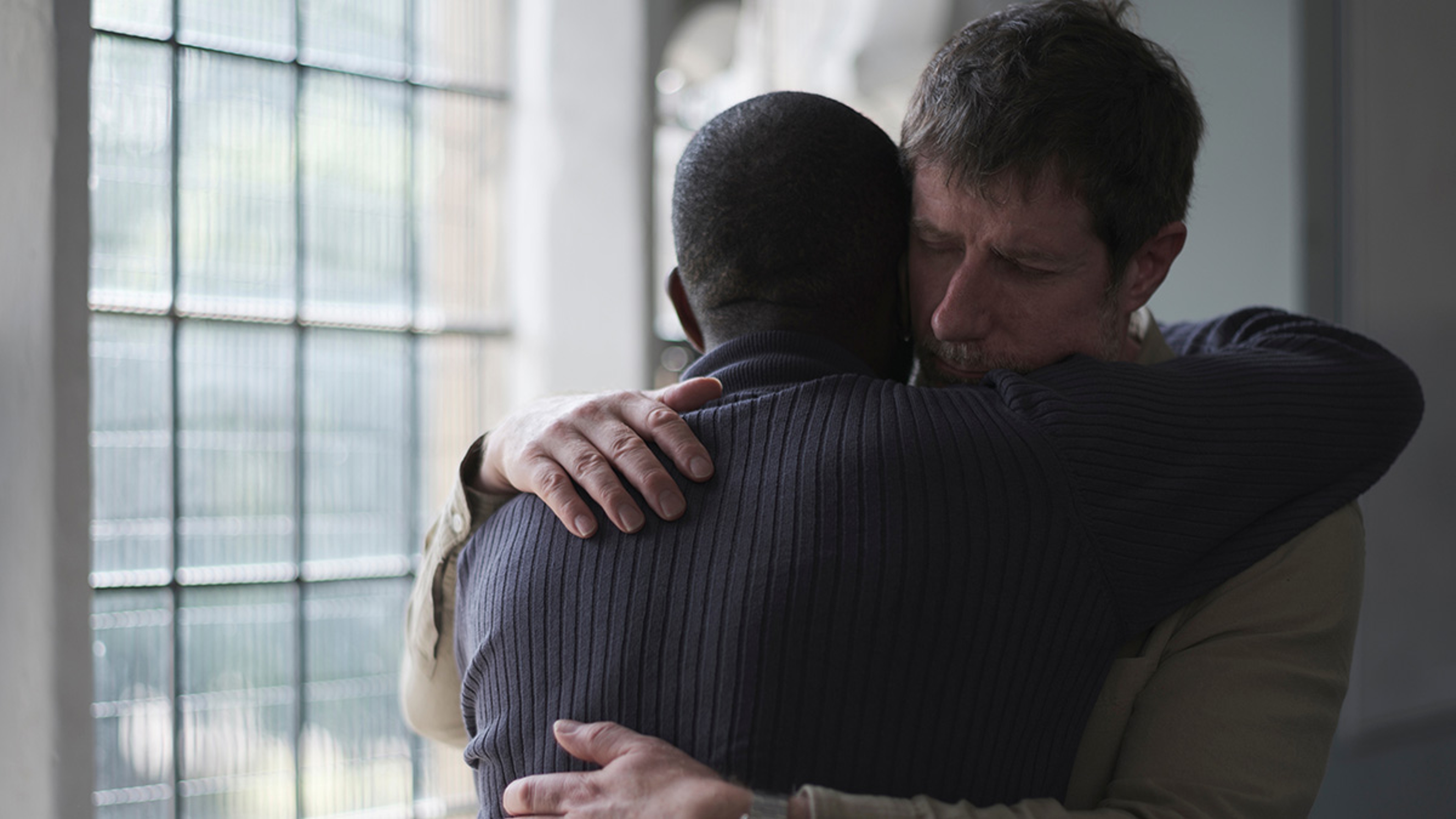We’ve all been there. Maybe a text arrives from a close friend or family member: someone they love has died. Your heart aches for them. You want to offer comfort, say something helpful, but the words don’t come easily.
This happened to me when a close friend lost her father. Having experienced loss myself, I thought I’d know what to say. But in that moment, I struggled with how to respond. Every relationship is different, every grief uniquely shaped, and sometimes, even our best intentions fall short.
The problem isn’t that we don’t care. It’s that we’re afraid to say the wrong thing. If you’ve ever found yourself wondering, What do I say? How can I help?, I spoke with grief therapists, chaplains, and people who’ve walked this road firsthand. Their insights are both tender and practical, and they remind us that sometimes, the smallest gestures mean the most.
READ MORE: How to Support a Loved One During Their First Year of Loss

Common phrases to avoid and why they may hurt
Before we dive into what to say, it’s important to acknowledge what not to say. When someone dies, there’s a natural impulse to comfort, to try to soften their pain or offer perspective.
“It’s a compassionate instinct,” says Rev. Christine V. Davies, a trained hospital chaplain and spiritual director, “but one that falls short because in this situation, there is nothing we can do or say that will lessen the impact of their grief.
In reality, saying the wrong thing can even be harmful, explains Dr. Terri Daniel, a hospice educator and end-of-life advisor. Any form of “comfort” that dismisses or diminishes someone’s pain may unintentionally add to their distress.
Here are a few phrases that often miss the mark — and why:
Dismissive platitudes: “Everything happens for a reason,” “They’re in a better place,” or “God needed another angel” can invalidate the griever’s experience and place pressure on them to make meaning before they’re ready.
Any sentence that starts with “At least”: “At least you had time together,” or “At least they’re not suffering,” may sound comforting, but they can make the griever feel like they should be over it, or worse, that they don’t have the right to be sad. Avoid making anything sound rosier than it is, because it’s a tough situation, and there’s no changing that.
Comparing their grief to yours: Even if you’ve experienced something similar, try not to compare losses. Each relationship is different, and so is each grief journey.
Unsolicited advice: Recommending therapy or suggesting they take certain steps (“You should talk to someone,” or “Try to stay busy”) can come off as dismissive in the early days of loss. In the acute stages, most people aren’t looking for solutions; they’re just trying to survive the day.
Thankfully, there are other ways to offer comfort. Here’s what to try instead.

What to say instead: Gentle, validating alternatives
If you're worried about saying the wrong thing, know this: You don’t need the “perfect” words. You just need to show that you care with gentleness and honesty, and without trying to fix the pain.
Still, it can be helpful to have a few phrases in mind that offer comfort without trying to solve anything. That’s where language that validates rather than reassures comes in.
Sarah Rollins, a social worker and owner of Embodied Wellness, suggests that sometimes simple and heartfelt is best. Phrases like “There are no words for how hard this is; I’m so sorry.” and “I’m here for you” are great starts.
If you’re planning to offer help, like dropping off a prepared dinner or care package, Rollins recommends being as specific as possible. This can make your support easier to receive, and it puts less pressure on the griever. Instead of saying, “Let me know how I can help,” try something like: “I’d love to drop off food so you don’t have to cook. Is tomorrow a good day?”

Optionally, you can add “I can leave it at the door so you can grab it whenever you feel up to it.” This gives your loved one a sense of care without the pressure of having to host or respond.
If you’re close to the griever, it might be okay to speak plainly. When my own mother died, I felt like everyone was tiptoeing around the grief, treating me like I might shatter. But one colleague simply said, “I’m really sorry. It sucks, doesn’t it?” And I remember thinking, “Yes! Yes, it does!” That moment felt more validating than anything else, because the truth had finally been acknowledged. I later found out he had lost a parent, too.
These kinds of phrases are grounding because they acknowledge the pain without trying to erase it. Here's a quick guide to help you reframe:
Instead of saying this... | Try saying this... |
|---|---|
"Everything happens for a reason." | "I'm so sorry. I'm here for you." |
"They're in a better place." | "There are no words for how hard this is." |
"Let me know if you need anything." | "I'd love to bring dinner by tomorrow. Would that be okay?" |
"At least they lived a long life." | "No matter how long we have, it's never enough." |
"You should talk to someone." | "This is so much. I'm here if you want to talk or just sit together." |
When words fall short, let your actions speak
While it’s important to acknowledge a loss in words, every grief expert I spoke with shared the same message: Often, words aren’t what’s most needed.
Your presence, especially in the early days, can be more comforting than anything you say.

“Don't underestimate the power of you being there,” Davies says. “Nothing needs to be said. This is a time when silence is often preferred. Take the lead from the grieving person; if they want to talk, let them express their feelings and experiences to you. If you do more listening than talking, that will help them feel cared for.”
Daniel echoes this, especially when supporting someone in acute grief. She explains that nothing said will ease emotional pain at this stage, but practical help can make a world of difference. It’s better to provide a safe space for the griever to talk if they feel like it, and more importantly, help them with what needs to be done.
Here are some of the tasks Daniel suggests stepping in to assist with:

Make calls to alert other friends/family about the death
Help with any related paperwork
Arrange childcare, petcare, or eldercare
Household chores
Help covering work responsibilities
Plan funeral, write obituary
Provide groceries/meals
Pay bills, raise money for expenses if needed
One thoughtful way to help is to write down what needs to be done, then assign tasks to members of the support circle, such as friends, coworkers, and extended family. In the first few weeks, this kind of quiet, behind-the-scenes help is often what grievers need most, Daniel explains.
READ MORE: What Is Grief Overload?
The smallest gestures matter most
Grief is deeply personal and often unpredictable. There’s no perfect thing to say, no single gesture that makes the pain go away. But showing up with empathy, listening without fixing, and offering small, thoughtful acts of care can mean more than you’ll ever know.
Whether it’s a few days after a loss or many years later, your words and presence still matter. Even a simple “I’m thinking of you” or “I remember” can remind someone they’re not carrying their grief alone.
When words feel inadequate, let your care lead the way. A thoughtful gesture can speak volumes. And remember that the smallest gestures, like shared memories, nourishing meals, and quiet company, are often the ones that stay with us the longest.
.svg?q=70&width=384&auto=webp)







